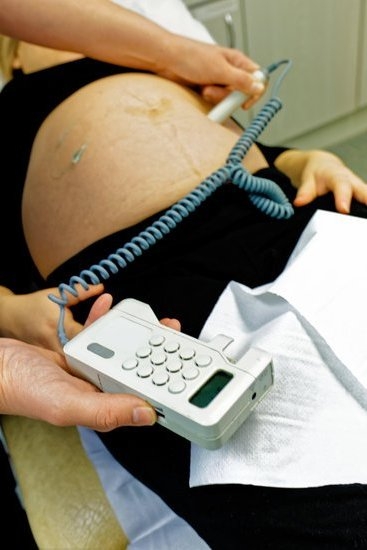Pregnancy is a momentous and life-changing event for any individual or couple. One of the common questions that arise during this time is: is blood a sign of pregnancy? Understanding pregnancy symptoms, including bleeding, is crucial for anyone who may be expecting or trying to conceive. It can be a source of worry or confusion, but being informed about what to expect can help alleviate some anxiety.
Implantation bleeding is one of the first signs of pregnancy that many women experience. This light spotting occurs when the fertilized egg attaches itself to the uterine wall. It is important to differentiate this from a regular period, as implantation bleeding is usually lighter in flow and color. However, spotting alone may not always indicate pregnancy – other early signs such as nausea, fatigue, and breast tenderness should also be taken into account.
Although bleeding during pregnancy can be concerning, it is not always a cause for alarm. Understanding the causes of bleeding during pregnancy, what is considered normal, and when to seek medical attention are essential aspects of prenatal care. Knowing how to differentiate between spotting and heavier bleeding can help women make informed decisions about their health and seek appropriate medical guidance when needed.
Understanding Implantation Bleeding
Implantation bleeding is a common occurrence that can often be mistaken for a regular period, leading many women to wonder, “Is blood a sign of pregnancy?” This type of bleeding typically occurs when the fertilized egg attaches itself to the uterine lining, around 6-12 days after conception.
Unlike a normal menstrual period, implantation bleeding is usually much lighter and shorter in duration. It may appear as light spotting or a pink or brown discharge, rather than the heavier flow associated with menstruation.
One key difference between implantation bleeding and a regular period is the timing. Implantation bleeding typically occurs earlier in the menstrual cycle than a normal period would, often before a missed period. Additionally, implantation bleeding is not accompanied by other symptoms commonly associated with menstruation, such as cramping or heavy flow. It is important for individuals who are trying to conceive to be aware of the signs of implantation bleeding so they can differentiate it from a regular period.
It is essential to keep in mind that while blood can indeed be a sign of pregnancy in the form of implantation bleeding, it is not the only indicator. Other common early signs of pregnancy include nausea, fatigue, breast tenderness, and frequent urination. If you are experiencing any unusual symptoms along with vaginal bleeding, it is crucial to consult with a healthcare provider to rule out any potential complications and ensure the health and safety of both mother and baby.
Common Early Signs of Pregnancy
During the early stages of pregnancy, many women may experience a range of symptoms beyond just the presence of blood. While implantation bleeding can be a common occurrence, there are several other signs that may indicate a potential pregnancy.
One of the most well-known symptoms is morning sickness, which can involve nausea and vomiting, typically occurring in the first trimester. Additionally, changes in appetite, fatigue, and heightened sensitivity to certain smells or foods are also common early indicators of pregnancy.
Breast Changes
Another early sign of pregnancy is changes in the breasts. This can include tenderness, swelling, or tingling sensations in the breasts as hormones shift in preparation for breastfeeding. The areolas may also darken and become more prominent. It’s important to note that these changes can differ for every woman and may not always be present.
Urinary Frequency
Frequent urination is another symptom that many pregnant women experience in the early weeks of pregnancy. This increased need to urinate is due to hormonal changes affecting the kidneys and bladder. While it can be bothersome for some women, it is generally considered a normal part of early pregnancy.
Understanding these common early signs of pregnancy can help individuals recognize when they might be pregnant even before taking a test. However, it’s essential to remember that not all women will experience these symptoms, and they can vary greatly from person to person. If you suspect you might be pregnant based on these signs or others, it’s advisable to consult with a healthcare provider for confirmation and further guidance on prenatal care.
Causes of Bleeding During Pregnancy
Bleeding during pregnancy can be a source of concern for many expectant mothers, as it can sometimes indicate underlying issues. Understanding the causes of bleeding is crucial in determining whether what you are experiencing is normal or requires medical attention. It is important to note that not all instances of bleeding during pregnancy result in complications, but being informed on when to seek help is essential for the health of both mother and baby.
One common cause of bleeding during pregnancy is implantation bleeding. This occurs when the fertilized egg attaches itself to the lining of the uterus, typically happening around the time you would expect your period. This light spotting is usually not a cause for alarm and should not be mistaken for a regular menstrual cycle. However, if the bleeding is accompanied by severe pain or cramping, it is advisable to consult your healthcare provider.
Another possible reason for bleeding during pregnancy could be due to changes in hormone levels or cervical irritation. In some cases, sexual intercourse or a pelvic exam can also lead to light spotting.
While these scenarios are often harmless, it is important to be aware of any sudden or heavy bleeding episodes, which could signal a more serious issue such as an ectopic pregnancy or miscarriage. If you experience persistent bleeding accompanied by dizziness, fainting, or abdominal pain, seeking immediate medical attention is crucial to ensure the best possible outcome for you and your baby.
| Causes | When to Seek Medical Attention |
|---|---|
| Implantation Bleeding | If accompanied by severe pain or cramping |
| Hormonal Changes or Cervical Irritation | If sudden or heavy bleeding occurs with symptoms like dizziness, fainting, or severe abdominal pain |
Possible Complications Associated With Bleeding During Pregnancy
Bleeding during pregnancy can sometimes be a cause for concern, as it may indicate certain complications that require medical attention. One common complication associated with bleeding during pregnancy is an ectopic pregnancy, where the fertilized egg implants outside of the uterus, typically in the fallopian tubes.
This can lead to heavy bleeding and serious health risks for the mother if not addressed promptly. It is essential to be aware of the signs and symptoms of an ectopic pregnancy, such as severe abdominal pain and dizziness, and seek medical help if you experience these alongside bleeding.
Another possible complication related to bleeding during pregnancy is a miscarriage. While not all cases of bleeding result in a miscarriage, it can still be a sign of impending loss. Miscarriages are often accompanied by intense cramping and heavier bleeding than what is typically seen with implantation bleeding or spotting. It’s crucial to consult with a healthcare provider if you suspect you may be experiencing a miscarriage to receive appropriate care and support during this challenging time.
In some instances, bleeding during pregnancy could also signal placental problems, such as placenta previa or placental abruption. Placenta previa occurs when the placenta partially or fully covers the cervix, leading to vaginal bleeding in the later stages of pregnancy.
Placental abruption involves the separation of the placenta from the uterine wall before delivery, causing heavy bleeding and posing significant risks to both the mother and baby. These conditions require immediate medical evaluation to prevent further complications and ensure the well-being of both individuals.
| Complications | Associated Symptoms |
|---|---|
| Ectopic Pregnancy | Severe abdominal pain, dizziness |
| Miscarriage | Intense cramping, heavier bleeding |
| Placental Problems | Vaginal bleeding (placenta previa), heavy bleeding (placental abruption) |
How to Differentiate Between Spotting and Heavier Bleeding During Pregnancy
During pregnancy, it is crucial to be able to differentiate between spotting and heavier bleeding to effectively monitor your health and the well-being of your baby. Spotting is defined as light bleeding that may appear as a few drops of blood on your underwear or when you wipe after using the bathroom.
Heavier bleeding, on the other hand, typically involves a flow of blood that is similar to a menstrual period. Understanding the difference between the two can help you determine whether what you are experiencing is normal or requires immediate medical attention.
To assist you in distinguishing between spotting and heavier bleeding during pregnancy, here are some key points to consider:
- Color: Spotting is often light pink or brown in color, while heavier bleeding may present as bright red blood.
- Consistency: Spotting is usually very light and does not require the use of a pad or tampon, whereas heavier bleeding may necessitate changing pads frequently.
- Duration: Spotting generally lasts for a short period of time, such as a few hours or days, while heavier bleeding can persist for several days.
It is essential to consult with your healthcare provider if you experience any form of bleeding during pregnancy. Remember that every pregnancy is unique, so what may be considered normal for one person could be significant for another.
Keeping track of the type of bleeding you are encountering and any accompanying symptoms can help your healthcare provider assess your situation accurately and provide appropriate guidance for your specific needs. If you have any concerns about the presence of blood during pregnancy, do not hesitate to seek medical advice promptly.
Tips for Tracking Bleeding and Other Symptoms for a Better Understanding of Pregnancy
Experiencing bleeding during pregnancy can be a cause for concern and may raise questions about the health of the pregnancy. While spotting or light bleeding can be common and harmless, it is crucial to keep track of any bleeding and other symptoms to better understand what is happening in your body. Here are some tips for tracking bleeding and other symptoms for a better understanding of pregnancy:
- Keep a journal: Record any instances of bleeding, including the color, amount, and duration. Note down any other symptoms you may be experiencing, such as cramping, nausea, or fatigue.
- Use a period tracker app: Many apps are available that allow you to log your menstrual cycle as well as any irregular bleeding. These apps can help you identify patterns and changes in your bleeding.
- Take note of triggers: Pay attention to any activities or events that seem to coincide with episodes of bleeding. Stress, physical exertion, or sexual intercourse could potentially impact your symptoms.
By diligently monitoring your bleeding and other symptoms, you may be able to provide valuable information to your healthcare provider to aid in their assessment. Remember that every pregnancy is unique, so what is normal for one person may not be normal for another. If at any point you have concerns about the amount or type of bleeding you are experiencing, do not hesitate to seek medical advice.
- Discuss with your healthcare provider: If you notice any worrisome patterns or changes in your symptoms, make sure to bring this up during your prenatal appointments. Your provider can offer guidance on whether further evaluation is necessary.
- Stay informed: Educate yourself on the possible causes of bleeding during pregnancy so that you can better understand what might be happening in your body. Knowledge is power when it comes to navigating the uncertainties of pregnancy.
- Trust your instincts: If something doesn’t feel right or if you have a gut feeling that something is off, don’t ignore it. Trust yourself and advocate for the care and attention you need during this crucial time.
Remember that while blood can sometimes be a sign of pregnancy complications like miscarriage or ectopic pregnancy, it can also simply be due to implantation bleeding or hormonal changes. Keeping track of your symptoms will enable you and your healthcare provider to make informed decisions about your care and ensure the best possible outcome for both you and your baby.
When to Take a Pregnancy Test if You Experience Bleeding
When experiencing any form of bleeding during pregnancy, it is natural to feel anxious and uncertain about the situation. One common misconception is that any type of bleeding automatically indicates pregnancy. However, it is essential to understand that not all instances of bleeding are a sign of pregnancy. In fact, spotting or light bleeding can also occur due to various other reasons such as hormonal changes, infections, or even cervical irritation.
Understanding Implantation Bleeding
Implantation bleeding is a common occurrence in early pregnancy and is often mistaken for a light period. This type of bleeding typically occurs around 6-12 days after conception when the fertilized egg implants itself into the uterine lining. It is usually lighter in flow and shorter in duration compared to a regular menstrual period. Understanding the timing and characteristics of implantation bleeding can help distinguish it from other forms of bleeding during pregnancy.
When to Seek Medical Attention
While spotting or light bleeding may be normal in early pregnancy, heavier bleeding accompanied by severe cramping or passing of tissue may indicate a more serious issue. It is important to consult with a healthcare provider if you experience heavy bleeding that resembles a menstrual period, especially if it is accompanied by abdominal pain or fever. Prompt medical attention is crucial in identifying and addressing any potential complications that may arise during pregnancy.
Importance of Timely Pregnancy Testing
If you experience any form of abnormal bleeding or suspect that you may be pregnant, it is advisable to take a home pregnancy test as soon as possible. Home pregnancy tests are designed to detect the presence of human chorionic gonadotropin (hCG) hormone in urine, which is a reliable indicator of pregnancy.
It is recommended to take the test in the morning when hCG levels are most concentrated for accurate results. If the test result is positive or if you continue to experience unusual bleeding, seek guidance from your healthcare provider for further evaluation and appropriate management.
Conclusion
Understanding the various signs and symptoms of pregnancy is crucial for individuals who are trying to conceive or suspect that they may be pregnant. One important aspect to consider is whether blood is a sign of pregnancy, specifically when it comes to bleeding. While implantation bleeding can be an early indication of pregnancy, it is vital to differentiate between normal spotting and potentially concerning bleeding during pregnancy.
It is essential for individuals to recognize that experiencing any type of bleeding during pregnancy should prompt them to seek medical advice promptly. While some causes of bleeding may be considered normal, such as implantation bleeding or hormonal changes, others may indicate potential complications that require immediate attention from healthcare professionals.
Understanding when to be concerned and when to consult a healthcare provider can make a significant difference in ensuring the health and safety of both the pregnant individual and the developing fetus.
In conclusion, while blood can indeed be a sign of pregnancy in the form of implantation bleeding or other types of vaginal bleeding, it is crucial not to rely solely on this symptom for confirmation. If you experience any bleeding during pregnancy, it is strongly recommended to consult a healthcare provider for proper evaluation and guidance.
Remember that every pregnancy is unique, and seeking medical assistance will provide you with the necessary support and care throughout this critical time in your life.
Frequently Asked Questions
What Does Early Pregnancy Blood Look Like?
Early pregnancy blood can vary in appearance from light spotting to a heavier flow, similar to a period. It may be pink, red, or brown in color and is often lighter than menstrual bleeding.
Is Bleeding an Early Sign of Pregnancy?
Bleeding can indeed be an early sign of pregnancy for some women. This is known as implantation bleeding, which occurs when the fertilized egg attaches itself to the uterine lining. However, not all women experience this symptom.
Is Getting Blood a Sign of Pregnancy?
Getting blood drawn for a pregnancy test is a common method to determine if you are pregnant. Blood tests can detect pregnancy earlier than urine tests, as they measure the levels of hCG (pregnancy hormone) in your bloodstream. It is a reliable indicator of pregnancy status.

Welcome to my fertility blog. This is a space where I will be sharing my experiences as I navigate through the world of fertility treatments, as well as provide information and resources about fertility and pregnancy.





